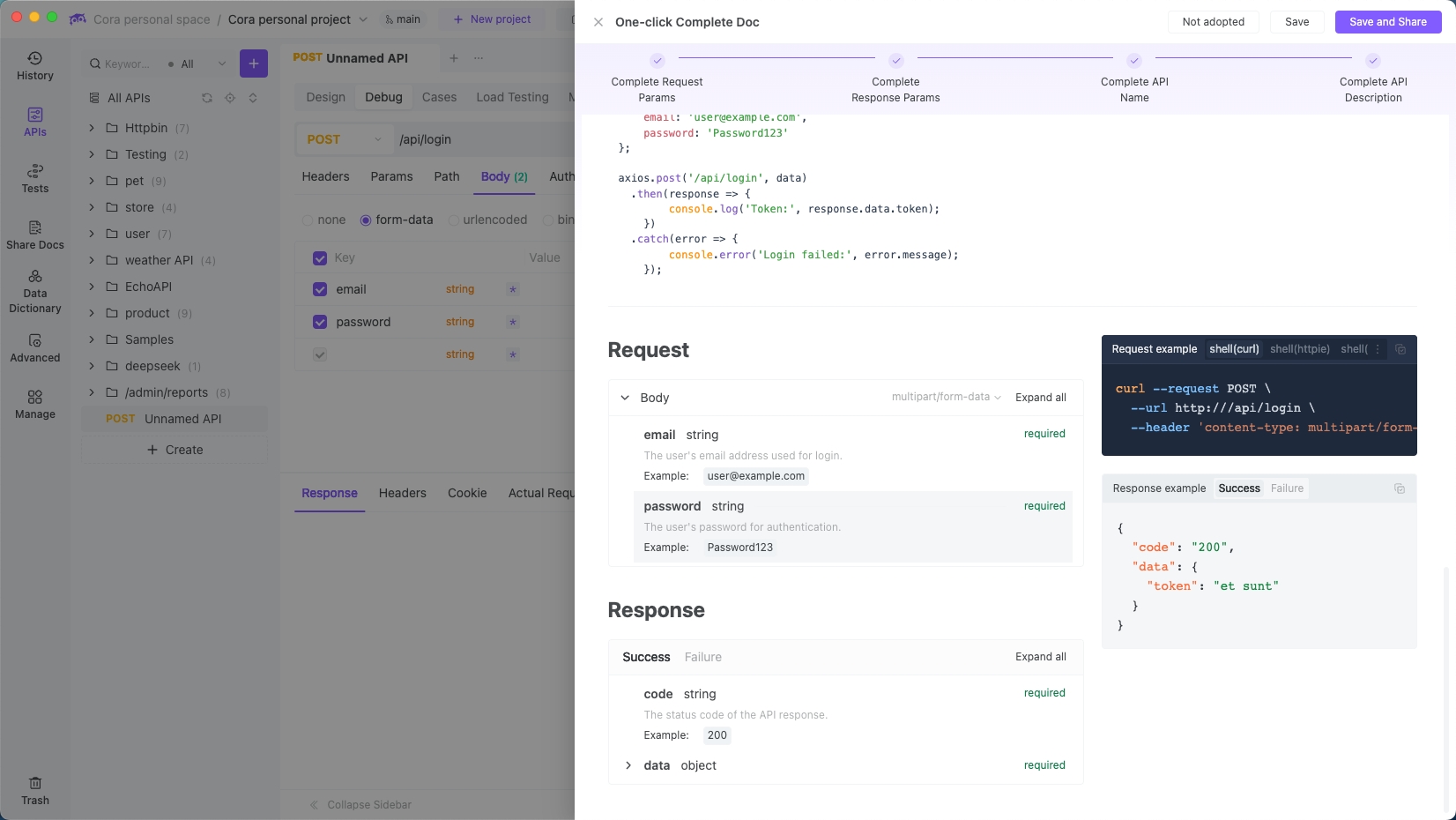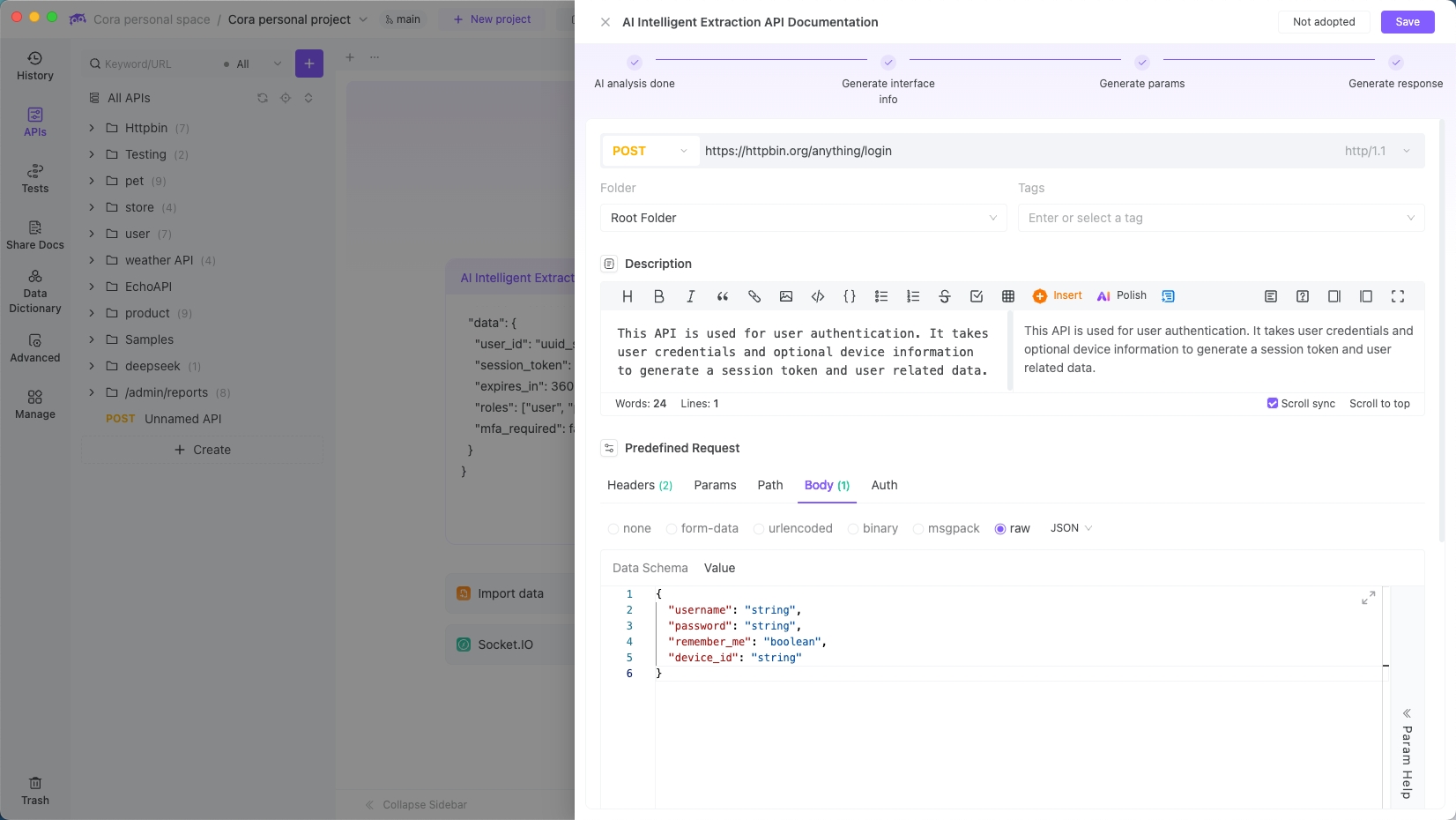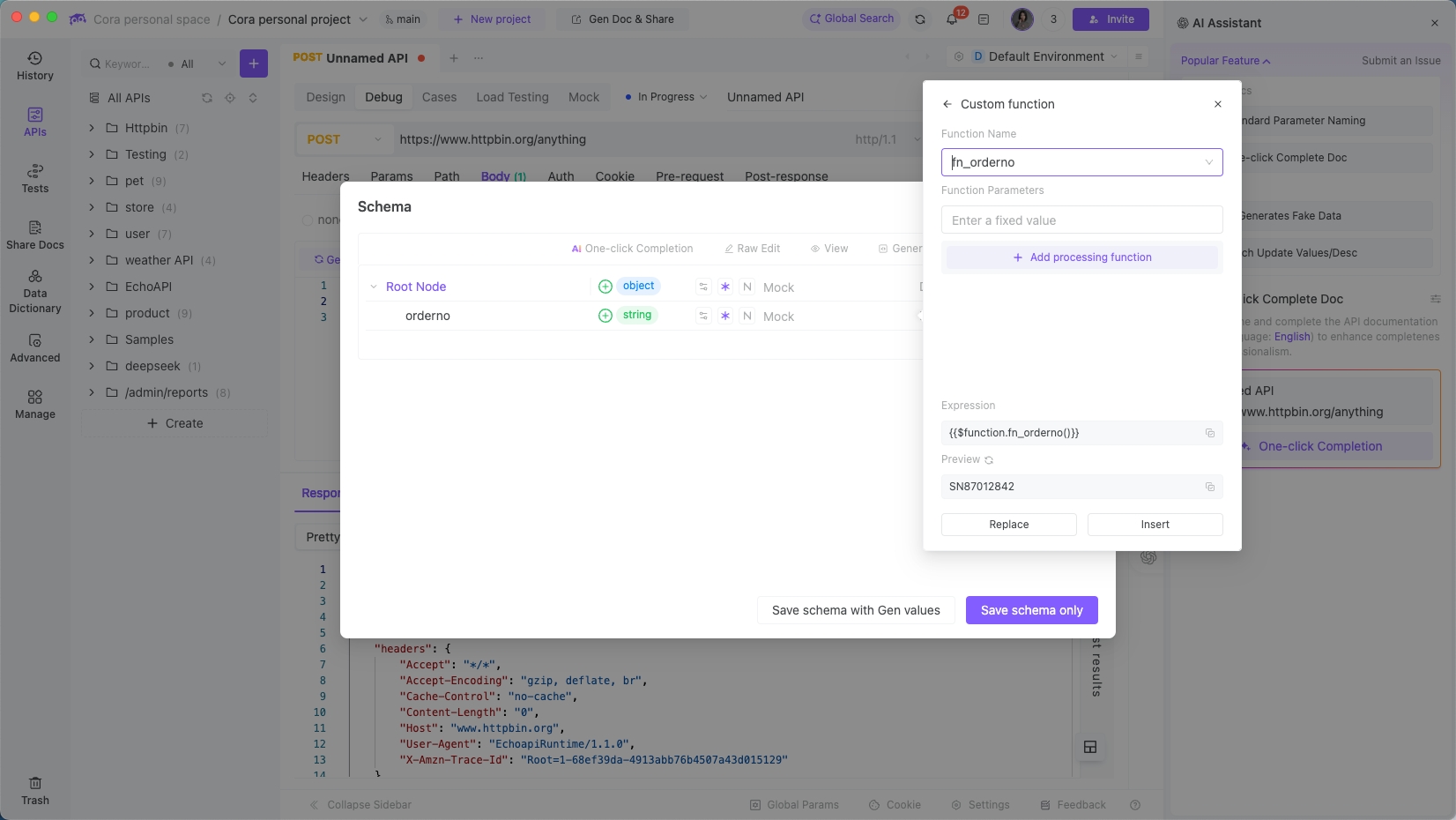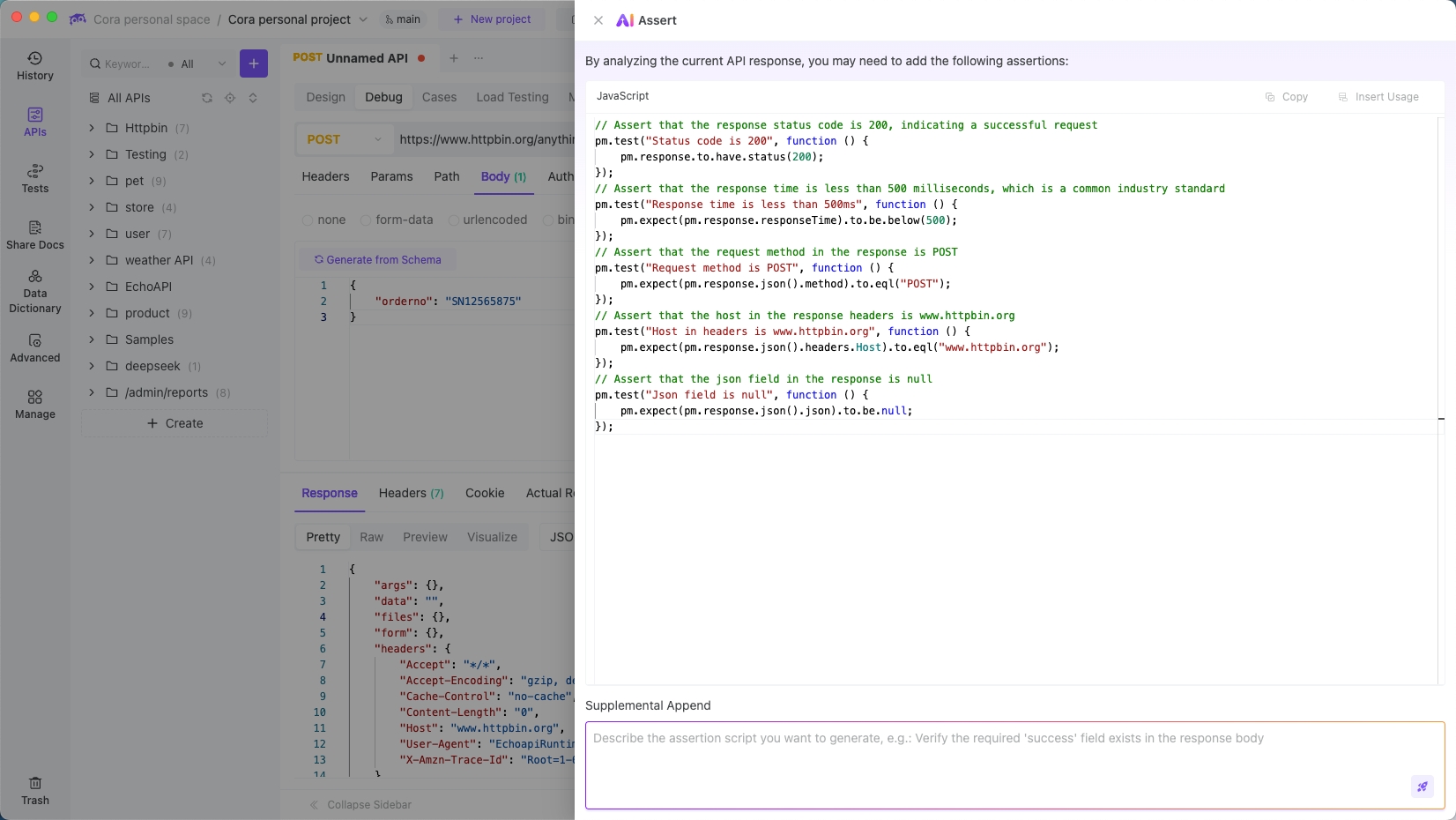From Messy Docs to Testing Harmony: How Modern API Tools Bridge the Dev Collaboration Gap
API documentation shouldn’t slow teams down — it should evolve with your code. Here’s how modern tools like EchoAPI turn messy docs into seamless collaboration.
If you’ve ever worked on an API team, you’ve probably heard this one before:
“The documentation’s outdated again.”
Last week, I spent two hours debugging a payment API with our frontend engineer.
He was sending parameters based on a doc I wrote three days earlier — and it kept throwing “invalid parameter format.”
Turns out, I’d changed the order_amount field type in the code but forgot to update the doc.
Classic.
At this point, our frontend devs joke that it’s faster to read my code than my documentation.
They’re not wrong.
Documentation Maintenance: The Ultimate “Thankless Task”
Before we adopted a better workflow, our team wrote all API docs manually in Markdown.
That… didn’t scale.
Here’s what kept biting us:
- Outdated updates: Every time a field changed, we had to manually edit parameter descriptions, example requests, and responses. During fast-paced sprints, the docs never kept up.
- Testing nightmares: Once I added a phone number validation rule in the registration API, but didn’t update the doc. Our QA spent an hour confused about why 11-digit numbers were failing.
- Version chaos: Docs were shared as static links. Every update meant a new link — and someone always used the old one. Communication went downhill fast.
Documentation quickly became a thankless, time-sucking chore, dragging down the entire team’s efficiency.
The Turning Point: Enter EchoAPI
Then we started using EchoAPI to manage our interfaces — and everything changed.
AI-Powered Auto Documentation

What blew me away first was its “debug = documentation” concept:
- After debugging an API, just click “Auto Complete Docs.” EchoAPI fills in field types, required params, and response examples automatically.
- Change a field type later? Just save the debug result — and your doc syncs in real time.
- Each doc has a unique shareable link, so frontend and QA teammates always see the latest version. No more “which doc is current?” debates.
From that moment on, I never hand-edited Markdown again.
The Big Leap: AI That Extracts APIs from Any Source
AI Smart Extraction for Offline API Docs

Our team often gets API details in random formats — Word docs, third-party web pages, Swagger exports, even code snippets.
Before EchoAPI, turning those into structured, usable docs was slow, manual, and error-prone.
Now it’s literally a three-step process:
- Open the AI Extract API feature;
- Paste in a Word doc, Swagger URL, or API page;
- EchoAPI automatically parses the request methods, URLs, parameters, and response structures — and generates a fully structured API doc.
The generated doc can be:
- Directly tested — no switching tools;
- Mocked instantly — frontend can start integration even before backend is ready;
- Shared in real-time — one unique link, always the latest version.
Before: QA spent an hour converting each Word doc manually.
Now: Paste → Generate → Save in under 15 minutes — and you’ve got a live, testable API doc with built-in mocks.
It’s not just faster — it means the whole dev, QA, and frontend team can finally collaborate on a single, living source of truth.
Dev–Test Collaboration: A New Kind of Workflow
EchoAPI doesn’t just solve the doc lag problem. It actually connects development and testing into a continuous workflow.
In many teams, QA engineers focus on functional testing but aren’t strong in code.
That’s why API automation often stays stuck at the “we should do it someday” stage.
EchoAPI changes that with AI-powered script generation — and full compatibility with Postman scripts.
Testers can now describe what they need in plain English, like:
“Generate a random phone number and save it as the variable mobile.”The AI instantly creates the corresponding script.
No more writing JavaScript from scratch.
That means real automation, without needing deep coding skills.

Smarter Validation: Let AI Write Your Assertions
If AI-powered docs solve the “how to write” problem, then AI-generated assertions solve the “how to verify” problem.
Traditionally, writing assertions for API tests meant hand-coding checks for:
- Field types
- Required fields
- Array lengths
- Token expiration
It’s tedious, repetitive, and easy to overlook something.
Now, EchoAPI can do this for you in seconds:
- Send a request and get the response body;
- Click “AI Generate Assertions”;
- EchoAPI analyzes the structure and produces ready-to-use JavaScript assertions;
- Need more? Just describe it — e.g., “Check if
rolesincludesadmin”; - Click Insert Code and it’s automatically added to your test case.
AI-Powered Assertions in Action

No more starting from scratch — AI generates multiple key assertions instantly and lets you tweak them with plain language.
That’s plug-and-play testing, redefined.
Conclusion: API Tools Are Becoming the Collaboration Hub
After using EchoAPI for six months, here’s my biggest realization:
- API tools are no longer just debugging utilities — they’ve become the central hub for dev collaboration.
- Documentation has shifted from manual to fully automated, keeping everything real-time.
- Frontend, backend, and QA now work off a single, testable, mock-ready source of truth, eliminating version drift completely.
We’ve gone from
“Reading the docs is slower than reading the code”
to“The docs are clearer than the comments.”
The bottlenecks that used to cripple collaboration are finally gone.
At the end of the day, the real value of an API tool isn’t just speed —
it’s giving your team back the time and focus to work on what actually matters: building great features and solving real problems.




 EchoAPI for VS Code
EchoAPI for VS Code

 EchoAPI for IntelliJ IDEA
EchoAPI for IntelliJ IDEA

 EchoAPl-Interceptor
EchoAPl-Interceptor

 EchoAPl CLI
EchoAPl CLI
 EchoAPI Client
EchoAPI Client API Design
API Design
 API Debug
API Debug
 API Documentation
API Documentation
 Mock Server
Mock Server








